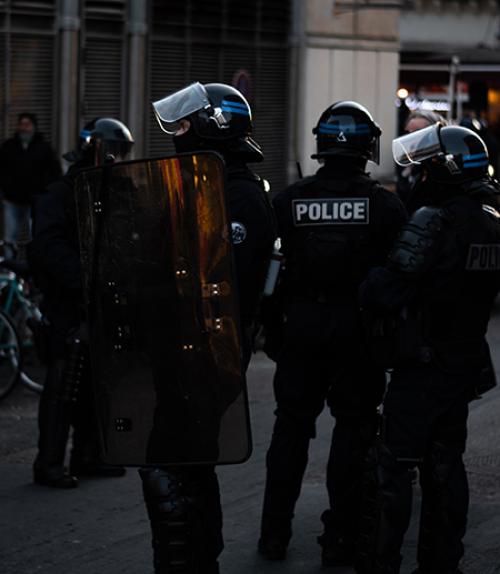Clashes between police and protesters escalated this week across the United States, as public outrage continued over police brutality and systemic racism.
Sabrina Karim, assistant professor of government at Cornell University, is an international expert on police reform. She says police militarization has been growing in the U.S. for a long time, which has inevitably created a larger barrier for any meaningful dialogue between peaceful protests and political leaders. Her research has found that militarization decreases public trust in policing:
“The history of policing in this country has origins in oppressing minorities. Modern day policing can be traced back to slave patrols in the South and a way to keep unions in check in the north.
“Police militarization has been growing since the 1960’s after the Watts riots in LA. It again grew under the Clinton administration with the now infamous ‘1033’ program, which allowed the federal government to transfer surplus military equipment to local police departments. The more militarized the police, the higher the risk that protestors are seen as a threat that must be met with violence tactics. The ability to engage in dialogue is very difficult if one person looks like he or she is ready for battle.
“Police reform is difficult to achieve in any country, because the police union and lobby strongly oppose oversight. Here in the U.S., most of the decisions regarding oversight and de-escalation training are made at the local level, which means that for any type of police reform, there must be just as much attention to local and state politics as there is to national level politics.”
For media inquiries, contact Linda Glaser, news & media relations manager, lbg37@cornell.edu, 607-255-8942





